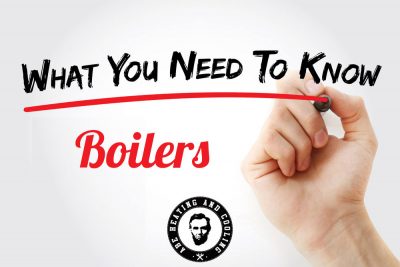“Abe's Heating and cooling were professional and on time. they helped me with two time sensitive projects and did excellent work. I know who I'll be calling if I should ever need an HVAC technician.”
Blog
 To implement proper maintenance within your home, you need to know how your boiler works. Not only does this save you money on breakdowns and replacements, but it also keeps your home safe. Let’s discuss a few things you should know about boilers.
To implement proper maintenance within your home, you need to know how your boiler works. Not only does this save you money on breakdowns and replacements, but it also keeps your home safe. Let’s discuss a few things you should know about boilers.
Most homeowners know very little about boilers. However, the best way to maintain a system is to understand how it operates. The following are 7 common questions about boilers and the answers you need.
Boilers use radiant heat to warm individual objects within rooms. Standard air furnaces warm, well, the air. Because boilers warm the object themselves, the heating takes place much quicker, and you can set your thermostat lower without sacrificing warmth.
To maintain your boiler, make sure the water levels are in the correct range. Examine the heat exchanger, as well as all valves and wires. It is extremely important to schedule a regular boiler inspection. This prevents small breakdowns from becoming large, expensive ones.
High-efficiency boilers require less energy to produce heat. Their rating is typically over 90%. Standard-efficiency boilers fall in the 80% energy rating, while low-efficiency boilers have an energy rating below 80%.
Common boiler problems include leaks, low water pressure, frozen pipes, strange noises, and extinguished pilot lights. Fortunately, most of these can be prevented with regular professional maintenance.
Most boiler systems have a water pressure gauge that indicates where your pressure should sit. As long as the arrow falls in the “safety zone” (usually bars 1-2), the water pressure is fine.
Boilers are called that because they used to boil water to produce steam. While they do not boil water today, they use gas to warm water, which flows over a heat exchanger. This heat then warms objects in the home.
As long as you keep your water boiler at the right temperature, burn risks remain low. Depending on what the boiler is made of, it can become hot to the touch, so keep children away from it.
You won’t catch every problem in time. If your boiler quits on you, you basically have two choices.
If you restart your boiler with no success, contacting a heating and cooling technician is your best method of identifying the problem.
As a licensed Rheem dealer, we can introduce you to some of the most energy-efficient and cost-effective systems currently available on the market. ABE Heating and Cooling offers great products with iron-clad warranties and superior installation services, all at manageable prices suitable for any budget. We are located in Brighton, Colorado, and serve the entire Denver Metro Area, and if you would like to learn more about high-efficiency furnaces please contact us today to discuss the possibilities.